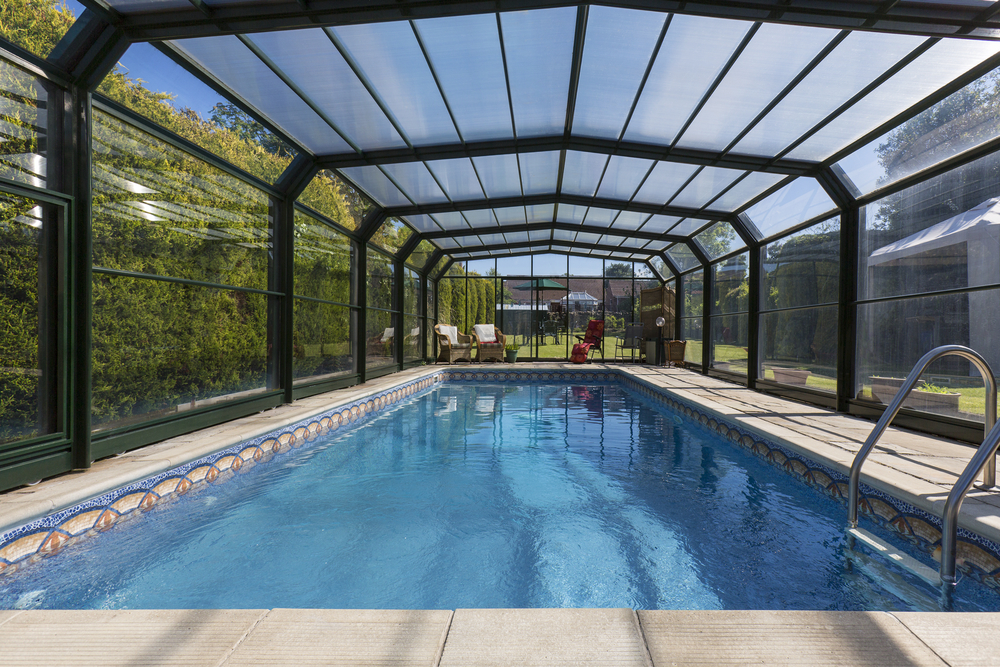Should you get an indoor swimming pool? It’s a question the best pool service contractors in Menifee, California get asked quite regularly. What are some of the reasons people want indoor pools? Here are a couple:
- Privacy
- The ability to swim no matter the weather (unless it’s lightning)
- Lower maintenance costs
When you own an indoor swimming pool, the weather isn’t a consideration and that in itself is a consideration for those who live in areas of the country that only have a limited swim season. The investment made in a swimming pool means that you will want to swim as often as you can and an indoor pool helps you get a return on your swimming pool investment! Triple-digit temperatures and frigid temperatures both may limit in-pool time and an indoor pool addresses both weather extremes.
Should you get an indoor swimming pool?
Here are unique issues that arise with an indoor swimming pool project.
Mold. Mold, mildew and musty odors can arise when you have an indoor swimming pool. Your pool contractor will discuss ventilation with you and you may even opt to have one wall of the indoor pool space that opens completely to help move the air around.
Scent. Chlorine smells could be an issue. The reason that chlorine — which is typically odorless — will smell is that there is too much free chlorine in the water. If you start to smell chlorine you need to test the water and address that. If you’re working with a swimming pool service contractor, he will help assure this issue doesn’t arise.
Super-chlorination. An indoor swimming pool requires more frequent shocking, aka super-chlorination. Yes, we know we just talked about chlorine above, but super chlorination is needed to rid the pool water of unfiltered waste. Unfiltered waste includes:
- Body oils
- Deodorants
- Undissolved solids, and others
When you have an outdoor pool, the wide-open space allows the unfiltered waste by-products to be released into the air. An indoor swimming pool, because of its enclosed space, traps the unfiltered by-products and that means your pool contractor will recommend more frequent shocking than with an outdoor pool. A drawback to the additional shocking is that the pool is unable to be used until the chlorine has been filtered through the water — typically 12-24 hours.
Safety. An indoor swimming pool may lead to higher safety concerns. The doors to the pool area need to be locked and alarmed in case a curious child unlocks the space. Talk with us for information on the safety measures you will want to implement for your indoor pool.
Filters. The cartridges in the pool filter may need to be cleaned more frequently.
Dehumidifier. When the indoor swimming pool is installed, a dehumidifier unit will be installed at the same time. The moisture levels need to be kept in check at all times to prevent mold from growing on the interior.
Is an indoor pool right for you? Do you have a space available for a pool or will you need to/want to build a room for it? Give us a call and let’s talk about your project.

